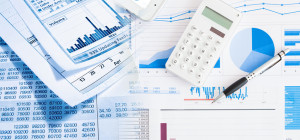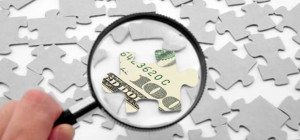Keeping a meticulous account of your financial dealings is imperative for the self-employed and will also help you avoid penalties from the government or HMRC. This applies for sole traders as well as individuals in a business partnership. Maintaining records of your personal income is also expected.
What Records to Keep
The main reason for keeping your financial income and expenditure in order is for tax purposes. The HMRC will want to know every record of your business dealings, as well as any personal earnings, which should be documented on your tax return.

This information should include:
- Bank statements
- Receipts
- Invoices
- Bills
- Cheque book slips
- VAT records
- Wages and PAYE records if you employ people
- Personal income records
Further details required could be:
- Any monies owed by debtors
- Any monies owed to creditors
- Value of any stock
- Any personal investments in the business
- Any money taken out the business for personal use
If you intend to use an accountant, then they will require the above details also. The government advises that you keep records for at least 5 years after the relevant tax year has ended.
Ways of Accounting
There a different forms of accounting to consider:

Manual Accounting - Manual accounting requires you to maintain records by inputting individual transactions into a general ledger book or software program such as Microsoft Excel.
Computer Software Accounting - In recent years, many self-employed individuals have begun using computerised programs to deal with their accounts. They will update your records automatically and accurately, taking the leg work out of tricky calculations.
Hire an Accountant - Either one of the above systems can be implanted yourself or by hiring a professional accountant. Although this will cost in the short run, their experience with accounting software, bookkeeping practices and tax filing procedures can be invaluable.
Types of Accounting

There are two methods of accounting as listed by the HMRC. These are:
Traditional Accounting - This is where income and expenses are recorded by the date you are invoiced. In essence, you are required to declare money which has not yet been paid into your account.
Cash Basis Accounting - For the self-employed who are reliant on income as and when it comes in, cash basis accounting may be a more suitable alternative. No income tax needs to be paid on money which wasn't received during the relevant tax year.
Tax for the Self-Employed

Perhaps the main reason for hiring an accountant is to remain as tax efficient as possible whilst eluding the minefield of potential penalties. In regards to income tax, once you have informed the HMRC of your self-employed status, an SA103 supplement must be filed along with your main tax return. If you do have to pay income tax, this will only be on any profit made rather than gross income.
Being self-employed, you're also allowed to claim on any expenses related to the business, referred to as capital allowances. These ‘capital assets' can range from smaller purchases such as stationary and stamps to a brand new laptop or travel costs. This potential relief can lower your income tax bill and increase profit margin.
Other Useful Tips
For the self-employed, consistently updating your financial records throughout the year and filing your tax return on time can be a constant worry. Here are some tips to relieve this pressure.
- Visit a free HMRC workshop for a whole host of advice on your self-assessment tax returns, VAT, and running a payroll if required.
- Sign up for a business bank account to keep personal affairs separate. Many will offer free banking for a set period also, usually 12 or 24 months.
- Take out insurance relevant to the line of work you're in. As a self-employed businessman, this could include income protection or critical illness cover.
- If you plan on receiving payments, consider investing in a debit and credit card machine, as well as online banking facilities or PayPal.
Becoming self-employed has many advantages, especially the freedom awarded by working for yourself. However, it also means you alone are responsible for dealing with the accounts and any tax returns. Unfortunately, this may not come naturally to everyone.
In response, it is advisable to hire a specialised accountant who can relieve the stress of complicated accountancy matters. To assist with this process and thus avoid tax mistakes, we recommend you keep meticulous records of all your financial dealings throughout the year.
This article was created on behalf of DLR Accountants.







